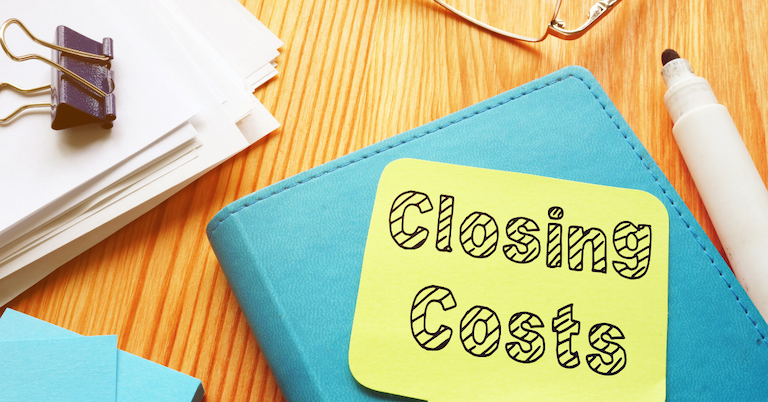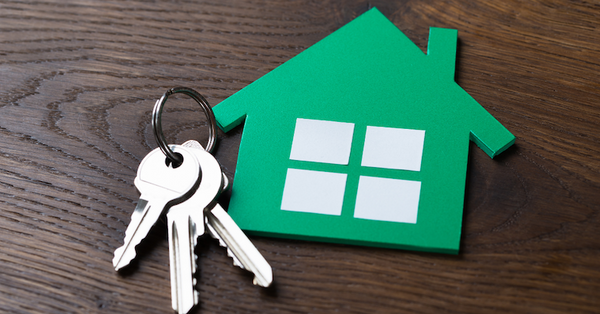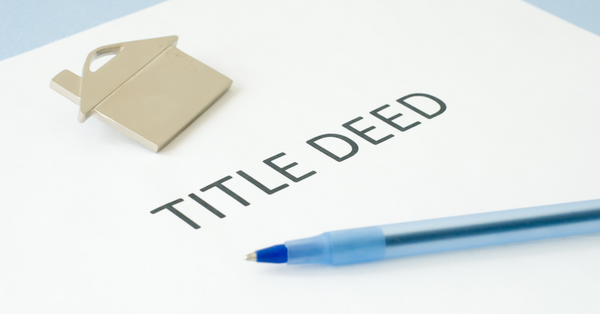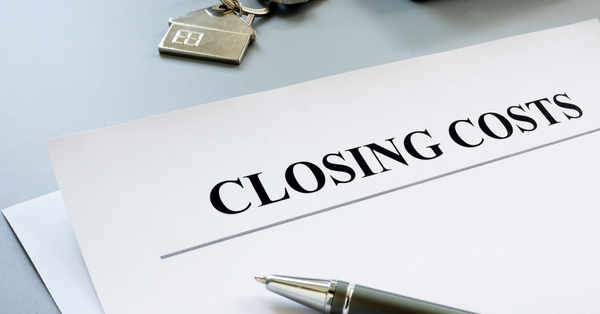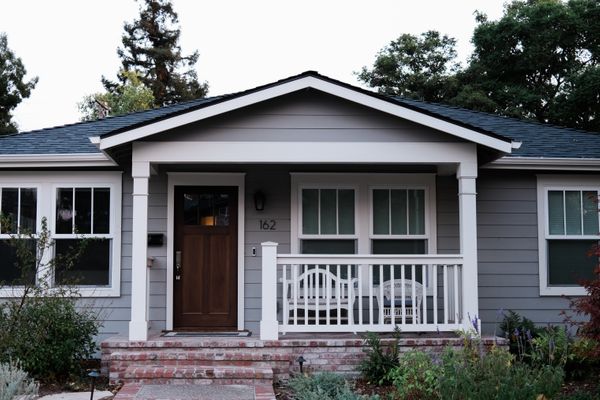When you purchase a home, you will need to pay closing costs. The total amount for closing costs is typically a small percentage of the purchase price due at the close of the settlement. If you are preparing to buy a home, it is vital to include all potential closing costs when creating your budget and determining what you can afford.
If you are wondering, "How much will I owe at closing?", then read this article to explore the different types of closing costs you can expect and how to reduce them.
How Do You Estimate Closing Costs?
The cost for the various items discussed below can vary depending on the economy, the local real estate market, the lender’s practices, and other factors.
Many of the closing costs in a home sale are related to the financing of the purchase, though there are expenses beyond the processing of the loan.
As the buyer, you are responsible for some of the costs, while the seller will pay others. Some closing costs are negotiable if the seller is willing to make their offer more attractive in a buyer’s market. You can expect to pay closing costs somewhere between 2 to 5 percent of the home's purchase price.
What Are the Property-Related Closing Costs You Should Expect?
Lenders go to great lengths and expense to evaluate the property being sold. Appraisal, inspection, and other fees are passed onto the buyer and make up a significant percentage of the total closing costs.
Appraisal
When you purchase a home and take out a mortgage loan, the lender will require for the property to be appraised. Appraisal and survey services help lenders determine the value of the property before making a mortgage offer, so they can be sure that the home is worth the amount they are lending.
Professional property appraisers start at a few hundred dollars and can be even more for larger homes. This is actually an up-front cost and is due before closing.
Home Inspection
While an appraiser evaluates the home's value, an inspector will provide a comprehensive report on the condition of the property. A professional home inspection will assess the structure and all operational systems.
Home inspections are typically done during the due diligence period after your offer is accepted. Home inspection fees are typically similar to appraisal fees and starting around $300 depending on the property size. These are also paid before closing, so you'll want to have this cash on hand before you make an offer.
Title Search
For homes with previous owners, your lender will want to learn the property's background and history. A title search usually costs around $400 and will highlight any prior issues with liens or other ownership problems.
Title Insurance
Title insurance protects the lender from unforeseen issues that may arise after the sale is completed. You can also purchase your title insurance to protect your investment at an additional cost. The lender’s title insurance premiums are usually lower than one percent of the purchase price.
What Are The Mortgage Closing Costs You Can Expect?
Processing a mortgage comes with a variety of additional fees and expenses to create and file the necessary documents. Application and other processing expenses are included in the closing costs buyers are responsible for paying.
Credit Report Fee
Your credit status is a major influencer in your lender's decision-making process, who will add the fee to the closing costs. Credit reports typically cost $25 for each person listed on the loan.
Origination Fee
Some lenders will add on a fee of around $100 to start the loan called an origination fee.
Application Fee
The processing fee to complete a home loan application can run up to a few hundred dollars and is at the discretion of the lender.
Underwriting Fee
The underwriting fee covers the expenses related to evaluating the loan and verifying the details of the mortgage. These administrative expenses are typically around 0.5 percent of the amount of the loan. Some lenders offer buyers the option to purchase mortgage points that will help lower the interest rate of the loan.
Local Fees
Depending on the municipality and community, local, state or city fees are associated with purchasing the home. Taxes and other purchasing fees can run hundreds or thousands of dollars in closing costs.
Once you purchase the home, you can file for the homestead exemption that exists in 46 of the 50 US states. This can help reduce your property taxes significantly and is offered to homeowners on their primary residence.
Legal Fees
Many homebuyers hire a real estate attorney to represent their interests at closing. Lawyer fees vary widely, and most charge hourly rates. Closing attorneys are required in some states.
Documents That Outline How Much You Will Owe at Closing
The most important documents associated with the processing of a loan mortgage are the loan estimate and closing disclosure.
These documents will not only outline the details of your loan, but they will also give you the amount that you can expect to pay in closing costs.
The loan estimate breaks down all expenses related to the mortgage, including closing costs, taxes, insurance, monthly payments, and other fees. A closing disclosure provides a more detailed account of all charges you are responsible for at closing and after the sale is completed.
How Can You Reduce Closing Costs?
Many of the mortgage expenses and closing costs are the responsibility of the homebuyer. However, some of them are at the discretion of the lender or seller and can be negotiated if they are willing to do so. The following are examples of ways you can reduce your closing costs.
Shop For Closing Services
While fixed expenses like the appraisal fee cannot be reduced, there are some items that have room for negotiation. Once you receive the estimate of all potential closing costs, you can get quotes from other lenders to potentially get a better deal. Seeking out estimates for basic services like title insurance and home inspections allows you to find the best prices to lower your total closing costs.
Discount Points
If you are planning on living in the home for many years to come, purchasing mortgage points will increase your closing costs but lower the interest rate and monthly payments. Commonly referred to as discount points, these upfront expenses allow you to control your payments and save money in the long run.
Have Seller Pay Some or All Closing Costs
If the seller is anxious to complete the deal in a buyer’s market, they may agree to chip in for some or all of the flexible closing cost expenses. Some lenders will place a cap on how much a seller can contribute to the buyer’s closing costs, but you may get them to contribute a significant portion.
Close At the End of the Month
Interest will begin to accrue from the day of the closing to the last day of the current month. That interest will need to be paid at the time of the closing. The deeper into the month you schedule the closing, the less you will have to prepay for the prorated interest on the first month.
Get $5,000 Towards Your Closing Costs When You Buy A Home With SimpleShowing
The closing costs associated with a home purchase are necessary expenses for acquiring a mortgage. However, these costs can be pretty signifcant.
At SimpleShowing, our team of experienced agents will work with you through the entire home buying process and give you $5,000 on average towards your closing costs just for working with us.
To minimize your closing costs and get the best deal possible, contact us for more info or book a showing today.
Conclusion
Buying a house isn't just about the listing price. It's also about understanding and preparing for the various costs that arise during the closing process. From your down payment and loan amount, to estimated closing costs, it's essential to account for each element to ensure a smooth purchase. Using tools like a closing costs calculator can be immensely helpful in helping you plan your budget.
Private mortgage insurance, homeowners' insurance premiums, property tax, and an upfront mortgage insurance premium are some of the typical closing costs that you may be required to cover. These costs are usually paid at closing and may also be added to your monthly mortgage payment or held in an escrow account.
The average closing costs vary based on a variety of factors, including the price of the property, the location, and the type of loan you choose. Always remember, knowing how to calculate closing costs ahead of time can provide you with a clear perspective on your overall financial commitment when buying a house. An informed buyer is a confident buyer, and a clear understanding of these costs will ensure your home buying experience is a successful one.

